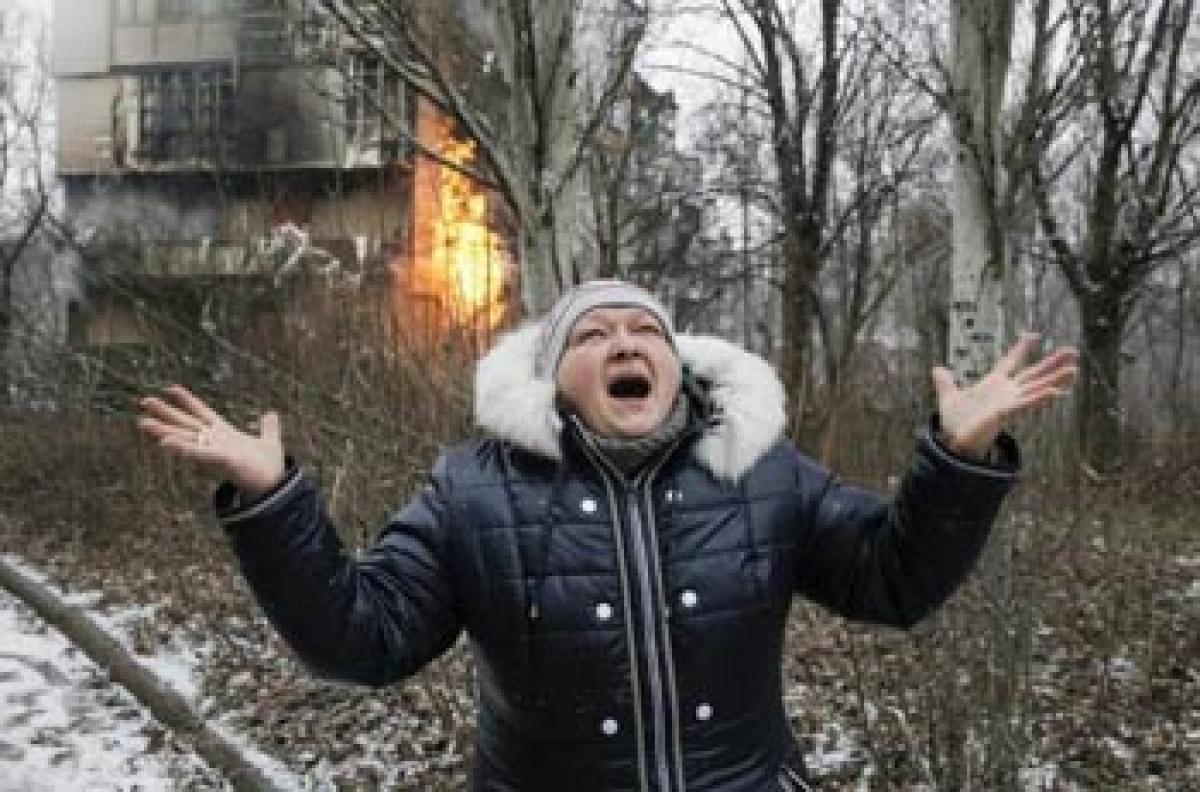Live
- After furore, Central Railway revokes order to raze Lord Hanuman Temple at Dadar
- Now hoteliers' body in Bengal's Alipurduar shut doors for Bangladeshi tourists
- District Collector Encourages Students to Utilize Government Facilities for a Better Future
- Per capita availability of fruits, vegetables increases in India
- FII buying reaches Rs 22,765 crore in Dec as economic growth stays resilient
- National Energy Conservation Day 2024: Date, Importance, and Easy Ways to Save Energy
- Gastronomic trouble: After 'disappearing' samosas Himachal CM in row over red jungle fowl
- Meaningful dialogue a priceless jewel of democracy: Jagdeep Dhankhar
- CM Revanth Reddy Advocates for Gurukuls as Talent Development Centers
- Zepto’s expenses surge over 71 pc in FY24, losses at Rs 1,248 crore
Just In

For months, as progress in implementing the Minsk peace deal for eastern Ukraine stalled, its architects, Germany and France, held out hope that with time and carefully calibrated pressure on Kiev and Moscow, the agreement could be pushed back on track.
Berlin/Paris : For months, as progress in implementing the Minsk peace deal for eastern Ukraine stalled, its architects, Germany and France, held out hope that with time and carefully calibrated pressure on Kiev and Moscow, the agreement could be pushed back on track.
- Western capitals worry Kiev will not keep its side of deal
- Ceasefire violations increased over past week
- US commander blames Russia, Moscow denies any role
- Pressure growing for sanctions on Russia to be lifted
But since a joint visit by the German and French Foreign Ministers to Ukraine's capital last week, a gloomier view has taken hold: that political dysfunction in Kiev has all but doomed the chances of it delivering on its own commitments under the peace agreement.
Against that backdrop and a rise in ceasefire violations in the east, where Ukrainian government forces are faced off against pro-Russian rebels, ministers from Germany, France, Russia and Ukraine met in Paris on Thursday to discuss Minsk.
Progress was seen but no breakthrough made during talks aimed at jumpstarting a fragile peace deal in Ukraine, ending with Moscow and Kyiv failing to agree on a proposal to hold elections in eastern Ukraine this year.
One of the meeting's main goals is to tackle what is now seen in many European capitals as the biggest hurdle to the peace deal Kiev's failure to push through an election law for the Donbass region of eastern Ukraine that would set the stage for a vote there by mid-year.
After barely surviving a no-confidence motion last month, Prime Minister Arseny Yatseniuk is seen as too weak to deliver. And yet there are few viable alternatives to Yatseniuk.
"At some point you have to ask yourself, how can it go on like this?" a senior German official said of Minsk, which was hammered out a year ago in marathon talks in the Belarus capital between Germany's Angela Merkel, France's Francois Hollande, Ukrainian President Petro Poroshenko and Russian President Vladmir Putin. For now, officials say, the goal is to keep Minsk on life support even if it looks dead.
Sanctions
The other big concern is a breakdown of the European Union's consensus on sanctions imposed on Russia over the Ukraine crisis amid an increasingly poisonous atmosphere in the bloc, aggravated by divisions over the refugee crisis.
The commander of US troops in Europe, Air-Force General Philip Breedlove, pointed a finger at Russia when he said on Tuesday violence in eastern Ukraine had increased significantly, with 71 attacks in 24 hours and 450 attacks over the past week.
Putin is making the case to sympathetic countries in central Europe that Russia has broadly delivered on its side of the Minsk bargain and therefore sanctions should be eased when they expire in July. Hungary's Prime Minister Viktor Orban, seen as close to Putin, fired a first shot in the looming fight this week, saying the EU must have a "serious debate" about Russia sanctions in the months ahead. He rejected the idea of an automatic extension.
Italy, which has significant economic ties to Russia and pushed back against a rollover of the sanctions in January, is also expected to put up a fight. Even in Germany, senior politicians like Economy Minister Sigmar Gabriel and Bavarian Premier Horst Seehofer have called for an easing of the sanctions, arguing that this may be the best way to win Russian cooperation in Syria.
By Noah Barkin & John Irish

© 2024 Hyderabad Media House Limited/The Hans India. All rights reserved. Powered by hocalwire.com







